The suggestion that, in some months at least, Corollas would outsell Commodores would have got you locked up. Back then, of course, oil was but $30 a barrel.
Although the VE Commodore is set to remain Australia's single, top-selling model range (see pages eight and nine) at least for the time being, the ground on which the passenger-car market is played has shifted seismically.
The immediate consequence is the ever-increasing popularity of relatively economical, four-cylinder, petrol-engined vehicles. Beyond that, cars powered by alternative fuels are with us in a way that's only going to get bigger.
Although diesel power comprises but a fraction of private-vehicle sales, that fraction has expanded this year to the point where "alternative" is too flighty a term.
Diesel has long been the dominant fuel in Europe, where tax incentives make it affordable. But even its comparatively heavy price at the pumps, and the premium Australians are obliged to pay for diesel cars, haven't curtailed the segment's growth.
At mid-year 12,182 diesel cars and SUVs had been bought by private owners. That's about one-twentieth of the number who bought petrol vehicles.
But twice as many diesel cars had been bought by June 30 as had been by mid-2005.
Volkswagen, now the best-selling German marque in Australia, sells more of its direct-injection, turbo-diesel models than its petrol variants.
The oilers available in cars of other marques — notably Audi, Peugeot and Citroen — make their near-equivalent-capacity petrol cars redundant.
VW's Polo Match diesel ($22,990) and the Citroen C4 1.6 HDi ($29,990) are just two diesels easily capable of more than 1000km on a tank.
The counter-claim that this superior-to-petrol economy barely compensates for a higher purchase price is diminished by two factors.
The first is that petrol equivalents of these cars demand costly premium unleaded. The second is that, increasingly, purchase prices are coming into line with those of petrol-driven cars.
Although hardly the most affordable example at $86,500, the recently launched Audi A4 3.0 V6 TDI Quattro literally drives home the point that diesel doesn't mean forsaking fun.
This A4 is a legitimate sports sedan that provides greater torque and superior dynamics to the $130K Audi S4 with its V8 petrol engine.
The A4 TDI benefits from essentially the same technology that powered twin Audi R10 diesels to victory and third place at Le Mans in June.
So, too, does parent group VW, whose range of 1.9 and 2.0 TDI Golfs starts from a less exotic $30K.
If diesel provides the most readily available and popular petrol alternative (VW has an oiler model in every range, including the forthcoming Eos drop-top), petrol/electric hybrids are coming hither.
If the most notable, Toyota's Prius, is a platform to showcase technology rather than a decent car, then the cheaper Honda Civic Hybrid shows that petrol-electric combinations need not mean complete compromise.
And the superb GS450H by Toyota's luxury subsidiary, Lexus, points to a future where V8-equivalent performance can be had for four-cylinder fuel economy, although an affordable way of accessing something so seamless (the GS450H costs $122K) is some way off.
Hydrogen vehicles are up and running, but not thus far as practical, mass-produced units.
BMW has been involved in hydrogen-cell research and development for 15 years, as product chief Burkhard Goschel told CARSguide last week.
"It will grow up, but how fast I don't know," Goschel said.
"The issue is storing hydrogen. You need about 10kg for a good range. It should be in liquid form, but some issues over storage in cars has to be solved."
Expect BMW to reveal a major development on this front later this year.
Once omnipotent in Aussie family-car dominance, Holden and Ford Australia are belatedly getting hip to a world where unleaded petrol costs $1.50 a litre.
Both manufacturers' parents have access to first-rate diesel engines. The prospect of a Falcon packing the superb 2.7-litre V6 bi-turbo diesel that also powers Citroens and Jags, is intriguing.
More immediately, Ford Australia has been galvanised to harness a readily available technology.
In an elaborate 23-day, 13,000km trial, an LPG-equipped Falcon is travelling around Australia for about $1000 in fuel.
Lexus GS450h
Price: $121,900
Engine: 3.5-litre V6 petrol & 147kW electric hybrid
Power (total): 253kW/368Nm plus
O-100km/h: 6.0 secs (est)
Fuel consumption (urban/open road combined): 7.9 litres per 100km
The first practical rear-wheel-drive luxury hybrid sedan makes Lexus's petrol V8s obsolete.
The hybrid Lexus betters the performance of the latter for fourcylinder economy. Only the lack of boot space - compromised by the RWD and battery gubbins - detracts from the package.
Toyota Prius II
Price: From $37,000-$46,500
Engine: 1.5-litre hybrid
Power/Torque: 57kW/115Nm
0-100km/h: 10.9 secs
Consumes: 4.4L/100km
Outstanding economy doesn't mitigate a prohibitive price tag, laughable looks and appalling driving experience.
You can have a petrol/electric hybrid without too much compromise, but not in this, the model that is unfortunately - synonymous with the technology.
Honda's Civic Hybrid is not only cheaper, it also looks like a car.
Peugeot 407 HDi
Price: From $61,990
Engine: 2.7-litre V6 bi-turbo diesel
Power/Torque: 150kW/440Nm
0-100km/h: 8.5 secs
Consumes: 8.4L/100km
The Ford/PSA joint venture twin-turbo diesel engine has won friends and influenced people since making its local debut in Jaguar's S-Type.
Available now in Pug's medium sedan and wagon, the thing can be accessed for $40K less. Ignoring the usual French-car caveats, these models render the V6 petrol irrelevant.
Ford Territory Turbo
Price: From $53,990 >Engine: 4.0-litre six-cyl turbo petrol
Power/torque: 245kW/480Nm
0-100km/h: 7.0 sec (est)
Consumes: 14.2L/100km
Australia's favourite SUV just got more go. Only problem is that it won't go as far - between refills, that is.
The all-wheel-drive Territory Turbo is an immensely accomplished SUV that really does have car-like handling, and a superb ZF six-speed auto gearbox.
Not only is the Tezza Turbo's claimed consumption figure considerable, however, it's also optimistic.
Holden Commodore Omega
Price: From $34,490
Engine: 3.6-litre V6 petrol
Power/torque: 180kW/
0-100km/h: TBA
Consumes:10.9L/100km
Australia's favourite fleet and government hack is finally here and it's pretty good (see page 24).
But is it too little, too late? Or, rather, too much, too late? Holden have made much of the fact that the incoming VE range drinks no more than the VZ series it replaces. Still that translates to almost $100 to fill from empty.
Mazda 3 Maxx Sport
Price: $28,500 (auto)
Engine: 2.0-litre four-cyl petrol
Power/torque: 108kW/182Nm
0-100km/h: 9.0 secs
Consumes: 8.9L/100km
It's Australia's favourite fully-imported car and with reason - combining bullet-proof Japanese quality, strong performance, driver-orientated dynamics and good economy.
Recently upgraded, the 3 comes as either a five-speed auto or six-speed manual gearboxes (another economy fillip), improved refinement and Euroequalling safety packages.
The 3 range starts from $21K, but punters typically go for the upperechelon models.
COMPARING FUELS
Petrol
By degrees of magnitude the most common fuel used in passenger vehicles.
PROS: Ready availability, almost infinite choice of capacity, relative affordability.
CONS: Petrol prices are going in only one direction - north.
Diesel
Diesels comprise a rapidly growing segment of the passenger car market.
PROS: Economy (more than 1000km per tank in some models). Performance.
CONS: Most diesel pumps are filthy. Diesel contains higher levels of sulphur. Biodiesel is rare and expensive.
Hybrid
Refers mainly to vehicles which use a rechargeable electric energy storage system and a fuelled propulsion power source.
PROS: Low-polluting and low-consuming. Increasingly affordable. Near silent.
CONS: Far too expensive (Prius). Dangerously silent.
LPG
Emission reducing and half the price of petrol, liquid petroleum gas is most commonly used in dual fuel large sedans, especially taxis.
PROS: Much cheaper and much cleaner than petrol.
CONS: LPG provision can eat boot space. Do you really want to drive a cab?
Hydrogen
In combustion variants, hydrogen is burned in much the same method as a petrol engine. In fuel-cell conversion, the hydrogen is converted to electricity through cells that then power electric motors.
PROS: A BMW internal combustion hydrogen car has attained 300 km/h. Mazda has developed rotary engines to burn hydrogen. General Motors is investing in fuel cells.
CONS: Making hydrogen a practical fuel is proving very difficult with no infrastructure at fuel stations to support it.
Ethanol
While the grain-derived stuff is "greener" than pure petrol, by no means is it so certain that all cars will run happily on the 10 per cent recommended ethanol mix.
PROS: Nice for Manildra. The Liberal Party loves it.
CONS: By no means nice for your car. The Liberal Party loves it.



.jpg)
.jpg)



.jpg)
.jpg)
.jpg)


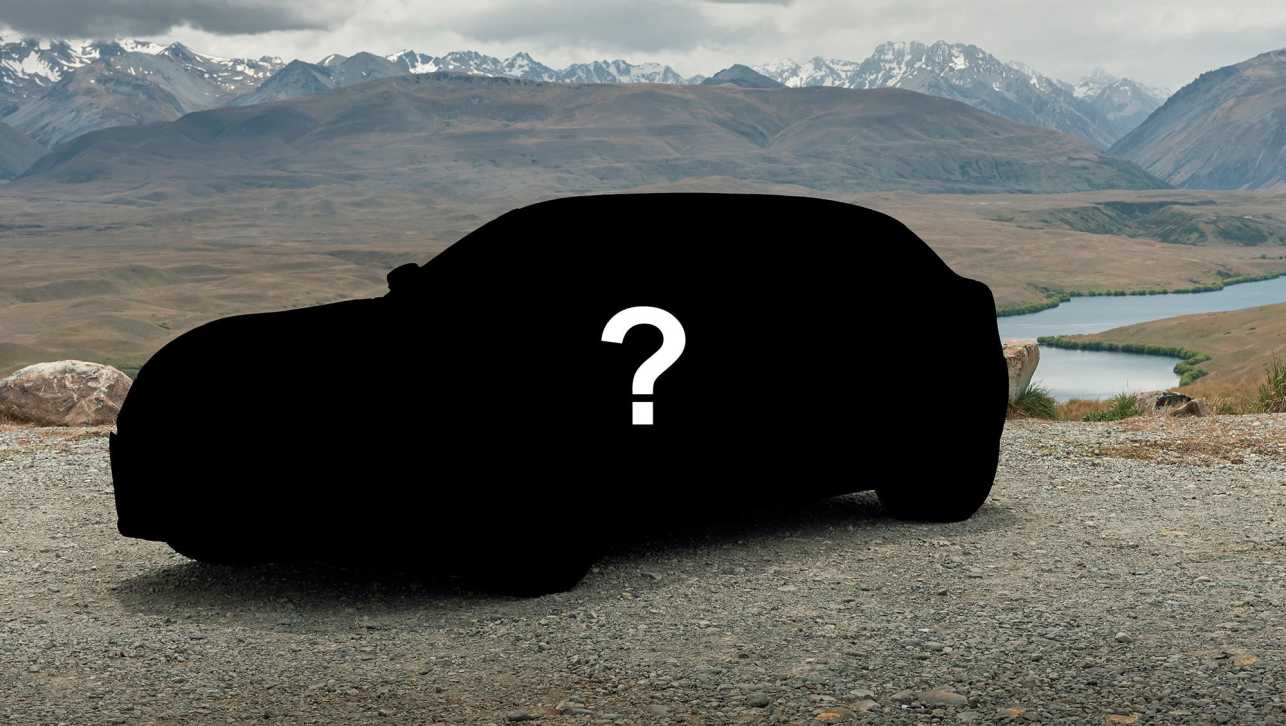
.jpg)
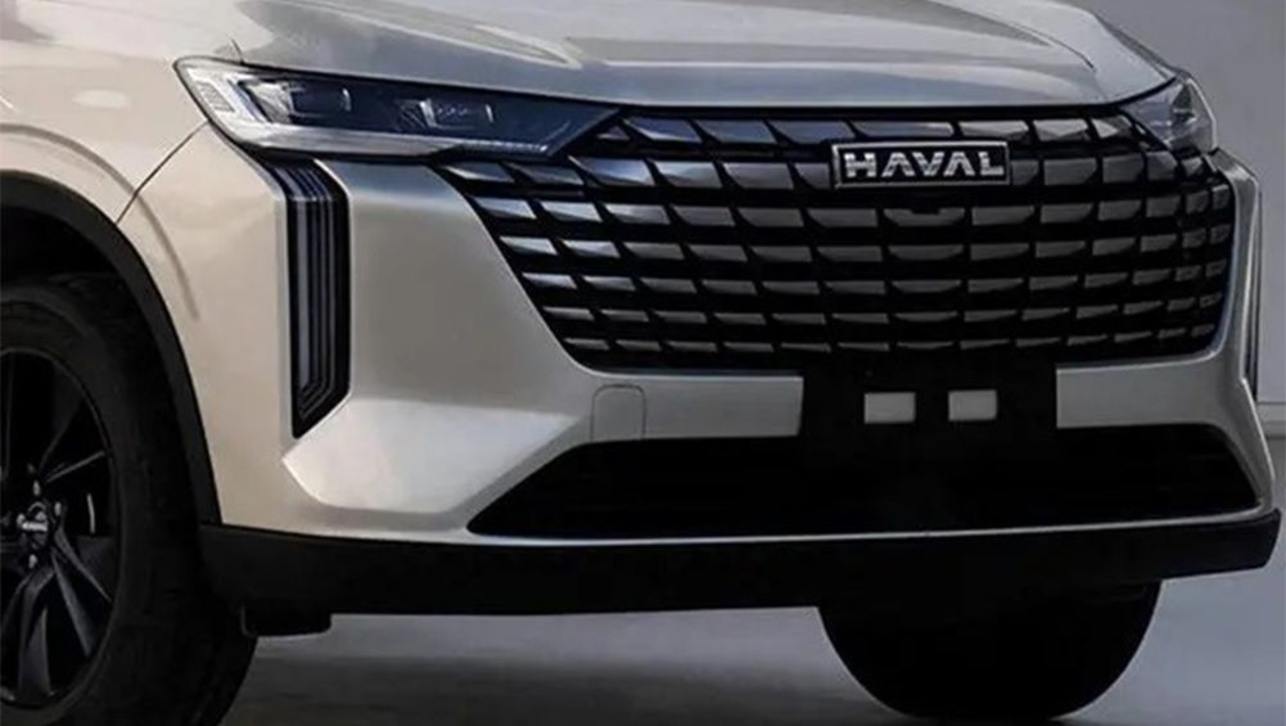
.jpg)
.jpg)
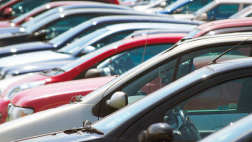
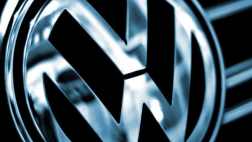
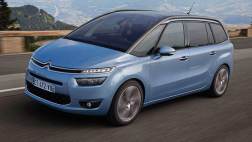



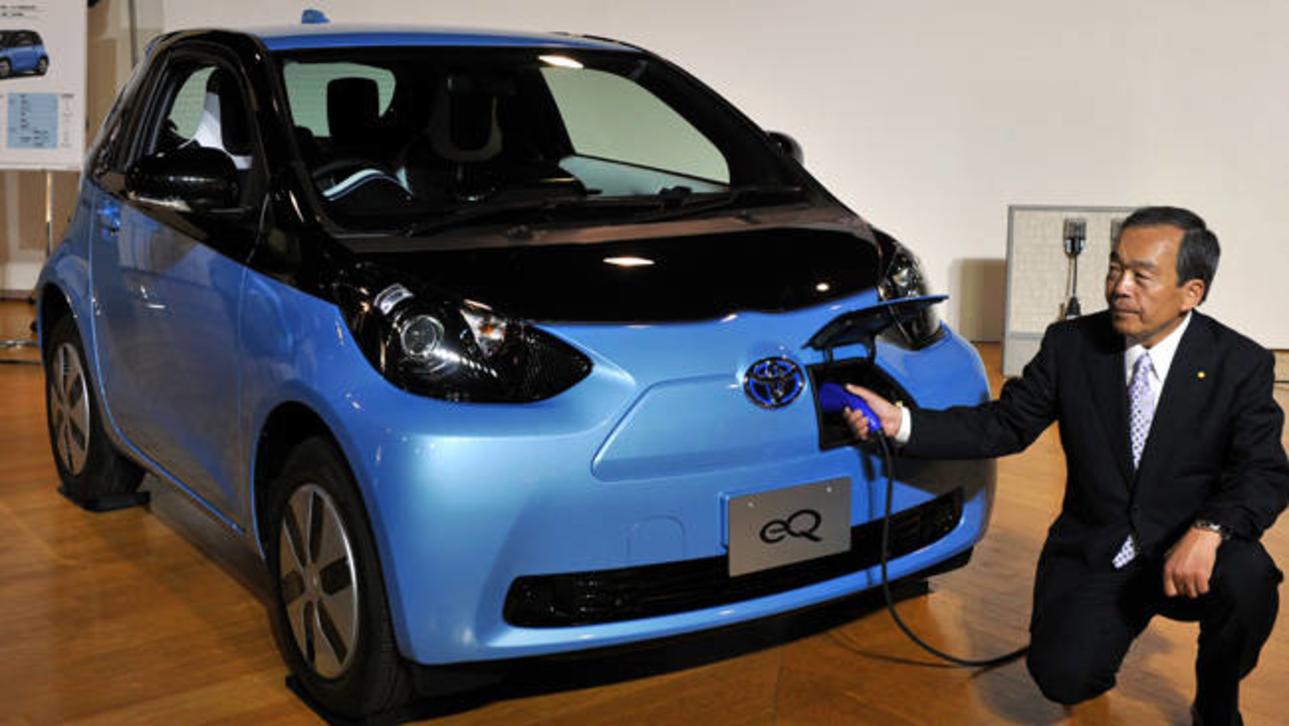


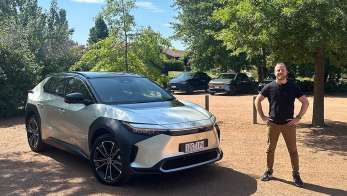


Comments